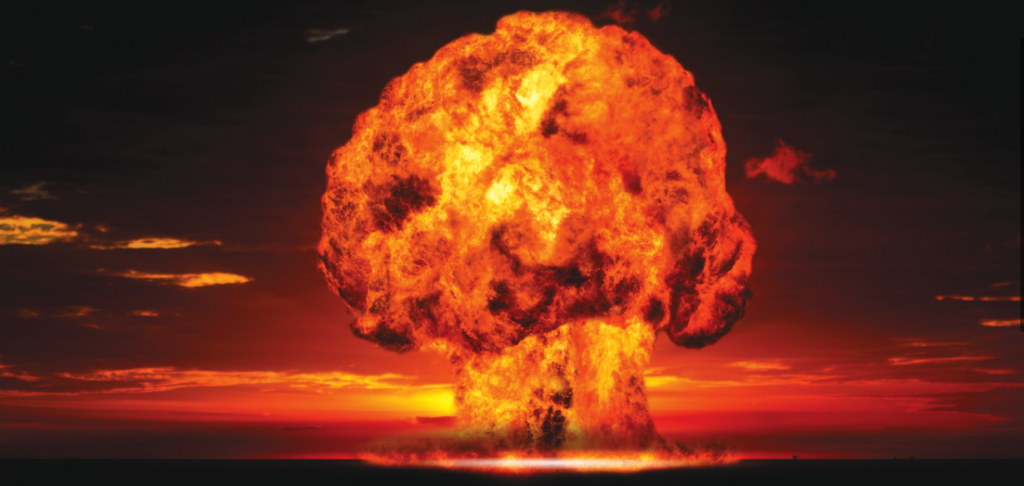
First Nations atomic survivors and civil society organisations are calling on the Australian government to sign the nuclear weapon ban treaty, 70 years after the first Emu Field atomic test.
The first nuclear weapons test was on mainland Australia at Emu Field, South Australia, on Anangu Pitjantjatjara Yankunytjatjara (APY) lands on 15 October, 70 years ago last month.
The British government—with the willing support of the Australian government of the day—tested a 10kt atomic bomb, codenamed Totem I. Not only did the operation fail to seek consent from the Anangu people, but the resulting radioactive ‘black mist’ fallout had harmful environmental, health and social outcomes that persist today.
In the wake of the Voice referendum, it’s important to prioritise the calls for justice of First Nations people and other nuclear survivors.
The International Campaign to Abolish Nuclear Weapons Australia (ICAN) released a civil society statement, co-drafted by Karina Lester (Yankunytjatjara Anangu woman and second generation survivor of the Emu Field nuclear tests) to mark the anniversary. It urged the Australian government to sign and ratify the Treaty on the Prohibition of Nuclear Weapons (TPNW).
The statement has been signed by more than 130 civil society organisations, including the Australian Red Cross, Public Health Association of Australia, Health Services Union, Oxfam and Catholic Religious Australia.
The statement outlines the escalating threat of nuclear weapons use, which is “exacerbated by war, regional conflicts and a changing geopolitical climate. The continued possession of nuclear weapons by nine nations poses grave humanitarian, human rights and major climate risks. Use of even a small portion of global nuclear stockpiles would cause nuclear winter, agricultural collapse and catastrophic harm to life on this planet.”
The statement calls on Australia to demonstrate its commitment to nuclear non-proliferation and disarmament by joining the TPNW.
Karina Lester’s late father, Yami Lester, was blinded because of the tests at Emu Field, and Karina carries his story as well as her grandmother’s story about the impacts of the tests on her people.
“Today is a very emotional day for my family. We carry the pain of what happened to my family and community as a result of those tests. Our communities are still suffering the health impacts from radiation poisoning,” Karina said.
“This has been a generational journey for us, and a generational story of talking about the traumas and the suffering and the scars that have been left not only on our traditional lands, on Yankunytjatjara and Pitjantjatjara country, but also in Western Australia as well,” she said.
“Our stories are stories that have been passed on from generation to generation. They’re sad stories, but they’re true stories. This is about truth-telling, and this is our story.
“This is why I am urging the Australian government to sign and ratify the TPNW, as Prime Minister Anthony Albanese promised to do when in government. They must listen to First Nations voices who never want to see these most destructive, indiscriminate weapons ever be used again.”
Authors of the statement argue that the TPNW “is the first treaty to set out a clear direction for the total elimination of nuclear weapons and to provide a framework for supporting survivors of nuclear weapons use, including the remediation of impacted environments. It is supported by most of our Pacific and South-East Asian neighbours.”
It says: “70 years on from the first mainland nuclear explosion, let us put an end to any involvement with nuclear weapons, now and forever.”
Read Media Release
